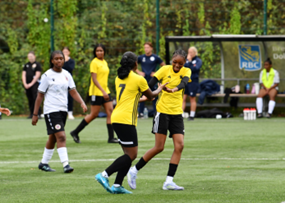Applied Criminology (level 3) - Vocational
This is an applied qualification. This means that it is designed primarily to support learners progressing to university. Criminology enables learners to understand different types of crime, influences on perceptions of crime and why some crime goes unreported. The course also looks into the process of the criminal justice system and the different stages from when the crime is committed all the way up to the sentencing and the agencies involved. This is all grounded in a Sociological and Psychological theoretical framework.
Course Content
Unit 1: Changing awareness of crime (internal assessment).
This unit looks at the different types of crime, the reasons why some people may be reluctant to come forward about crime and the ways in which people are fascinated with crime in society. This unit also goes into the details of how seemingly inoffensive crimes lead to more serious crime, for example, the production and sale of counterfeit goods has led to the funding of more serious crimes such as terrorism.
Unit 2: Criminological theories (external assessment).
This unit looks at how we decide what criminal behavior is. This unit gives a greater insight into the kind of thinking used by politicians and experts to explain crime and criminality. Public law makers are informed by theories and they apply these to the solution of crime prevention.
Unit 3: Crime scene to courtroom (internal assessment).
Student will gain an understanding of the people who are involved behind the scenes when a crime has been committed. They will look at the investigative techniques used and what happens when someone is charged by the police and the crown prosecution service and what safe guards are in place to make sure there is a fair trial the jury is also a key part of this unit and what influences their decisions.
Unit 4: Crime and punishment (external assessment).
This unit will ask questions and get students to think about questions such as ‘why do most of us tend to obey the law even when to do so is against our own interest, how have institutions developed to ensure that people do obey the laws of society? This unit will answer those questions and focus on how the criminal justice system works to achieve social control.
Assessment
Students will be assessed on all 4 units which are studied. There are 2 external exams which are then externally assessed. Unit 1 which is a 90 minute exam worth 75 marks and Unit 3 which is 1 hour 30 minutes exam worth 75 marks. Unit 2 and unit 4 are internally assessed.
Entry Requirements
Students require a grade 5 or above in English Language GCSE and Maths GCSE. Students who only achieve a grade 5 in Maths GCSE will be expected to follow the Level 3 Core Maths programme.
Career Progression
Criminology will prepare you for careers that centre on the challenges and demands that members of a society face. This leads to jobs in Social Services, Education, Criminal Justice, Welfare Services, Government, Counselling, Charities and the Voluntary Sector. They include Charity Fundraiser, Community Development Worker, Counsellor, Lecturer, Housing Officer, Teacher, Probation Officer, Social Researcher, Social Worker and Welfare Rights Adviser.
There are also wider transferable skills that you can develop including the ability to judge and evaluate evidence; understanding the complexity and diversity of situations, including organizations themselves; collecting information and making reasoned and logical arguments. Criminology students will also develop a wider set of transferable skills like team-working; verbal communication skills; showing initiative, and being able to work in a way that is supportive of equality and diversity in the workplace.
















